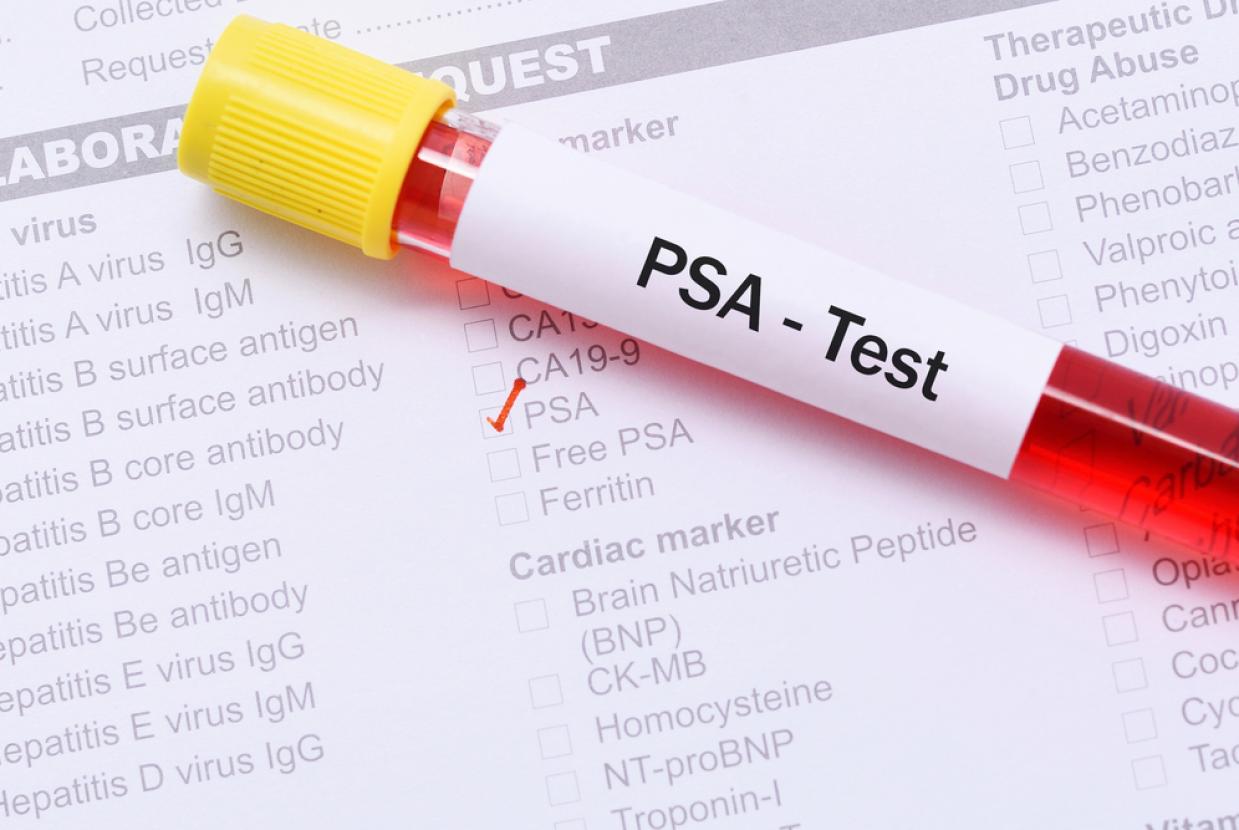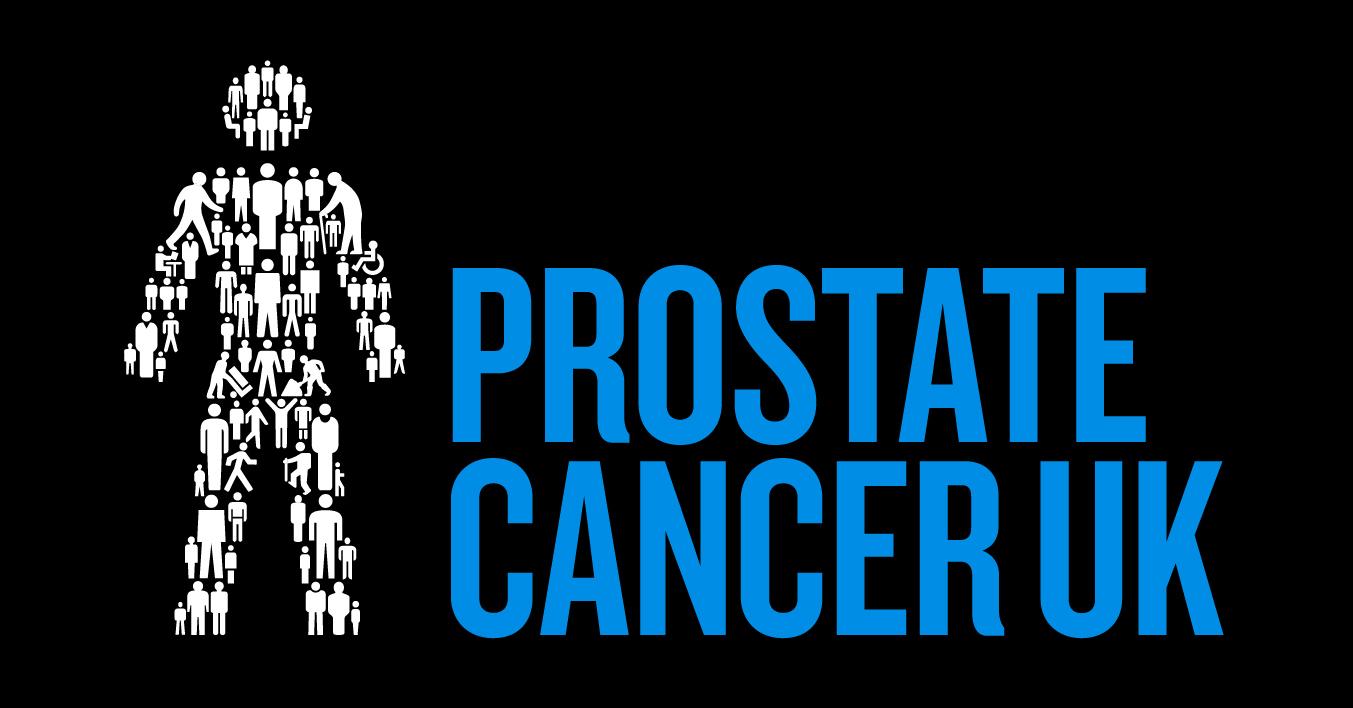The PSA Test
What is the PSA test?
The PSA test is a blood test that measures the amount of prostate specific antigen (PSA) in your blood. PSA is a protein produced by normal cells in the prostate and also by prostate cancer cells. It’s normal to have a small amount of PSA in your blood, and the amount rises slightly as you get older and your prostate gets bigger. A raised PSA level may suggest you have a problem with your prostate, but not necessarily cancer.
Who can have a PSA blood test?
You can make an appointment with your GP to talk about the about the advantages and disadvantages of the PSA blood test. The test is available to anyone with a prostate, including trans women and some non-binary people.
Prostate cancer mainly affects men over 50, and your risk increases as you get older. If you're over 50 and you're worried about your risk, you might want to ask your GP about the PSA blood test.
You have a higher risk of prostate cancer if you’re Black or have a family history of prostate cancer. For that reason, we strongly recommend you speak to your GP about having a PSA blood test from the age of 45
You may also be offered a PSA test if you have symptoms of a possible prostate problem.
Some men are offered a PSA test as part of a general check-up. You should still think about the advantages and disadvantages and whether the test is right for you before agreeing to have one.
What could affect my PSA level?
Prostate problems, such as an enlarged prostate, prostatitis or prostate cancer, can cause your PSA level to rise – but lots of other things can affect your PSA level too, including the following.
- A urine infection – You may have a test for a urine infection as this can raise your PSA level. If you have an infection, you’ll be given treatment for it. You’ll need to wait until the infection has gone – around six weeks – before you have a PSA test.
- Vigorous exercise – Activities that raise your heart rate like cycling may raise your PSA level for a few days. So it's a good idea to avoid vigorous exercise for 48 hours before the blood test.
- Ejaculation – You should avoid any sexual activity that leads to ejaculation in the 48 hours before a PSA blood test.
- Anal sex and prostate stimulation – Receiving anal sex, or having your prostate stimulated during sex, might raise your PSA level for a while. You should avoid this for a week before a PSA test.
- Prostate biopsy – If you’ve had a biopsy in the six weeks before a PSA test, this could raise your PSA level.
- Medicines – Let your GP or practice nurse know if you’re taking any prescription or over-the-counter medicines, as some might affect your PSA level. For example, some medicines used to treat an enlarged prostate, known as 5-alpha-reductase inhibitors such as finasteride (Proscar®) or dutasteride (Avodart®), can reduce your PSA level and give a false test result.
- Other tests or surgery – If you've had any tests or surgery on your bladder or prostate, you may need to wait up to six weeks before having a PSA test.
- Urinary catheters – If you have a catheter to drain urine from your bladder, you may need to wait up to six weeks after it has been put in before having a PSA test.
Having a PSA blood test
You can have a PSA test at your GP surgery. Your GP or practice nurse might talk to you about having a PSA test if you're worried about prostate problems, if you’re at increased risk of getting prostate cancer, or if you have symptoms such as problems urinating.
What will happen at the GP surgery?
If you don't have any symptoms, your GP or practice nurse should talk to you about the advantages and disadvantages of the PSA test before you decide whether to have one. You should tell them if anyone in your family has had prostate or breast cancer.
Your GP or practice nurse will also talk to you about your general health and any other health problems. If you have a serious health problem that means you wouldn't be fit enough for treatment for prostate cancer, or if treatment wouldn’t help you to live longer, your GP may not recommend having a PSA test unless you have symptoms of a possible prostate problem.
If you decide you want a PSA test, your GP may also talk to you about a digital rectal examination (DRE) and a urine test to rule out a urine infection. A DRE is usually only needed if you have symptoms. You don’t have to have a DRE. You can choose to have a PSA blood test alone.
What does the PSA blood test involve?
A sample of your blood is taken and sent to a laboratory to be tested. The amount of PSA in your blood is measured in nanograms (a billionth of a gram) per millilitre of blood (ng/ml). You can eat and drink as normal before having a PSA test.
It can take one to two weeks to get your test results.
PSA blood testing in the community
PSA tests are available for free from your GP. You may sometimes see PSA tests being offered in places such as community centres or football stadiums. If you’re thinking about having a PSA test at this type of event, make sure a doctor or nurse will be there to help you make an informed choice about testing, and to help you understand the results.
If you can, it’s usually best to visit your GP for a PSA test. If you do have a PSA test in the community you should inform your GP surgery so they can add the result to your records, which are seen by your GP. If you’re unsure or worried about your result, speak to your GP.
PSA blood testing at home
PSA blood tests and urine tests for other men’s health conditions can be bought online. These home tests may not be accurate and reliable, and it is best to get any tests you want through your GP instead. They will be able to explain the results and answer any other questions you have too.
What will the test results tell me?
Lots of things can cause a raised PSA level, including the following prostate problems:
- an enlarged prostate
- prostatitis
- prostate cancer
So a PSA test alone can’t usually tell you if you have prostate cancer. It's the first step in deciding if you need more tests, including an MRI scan.
To decide whether you need to see a specialist at the hospital, your GP will look at:
- your PSA level
- the results of a DRE, if you've had one
- whether you have any risk factors for prostate cancer
- any other health problems
- if you have any urinary problems
- if you’ve had any tests for prostate cancer before.
What is a normal PSA level?
For many men, normal PSA levels are usually less than 3ng/ml. But this will vary from person to person and depends on a lot of things including:
- your age
- your general health
- if you have any urinary symptoms
- if you are on any medication.
Your doctor will tell you what your own PSA level should be.
What happens next?
If your doctor thinks your PSA level is high, they may refer you to a specialist at a hospital for more tests. You will usually see a specialist within a few weeks.
If your GP thinks something else has caused your PSA level to be raised, they might suggest having another PSA test in the future to see if your PSA level changes, rather than seeing a specialist straight away. You can also ask your GP to refer you to a specialist.
Your GP should discuss all of this with you, to help you decide what to do next.
Regular PSA blood tests
After some men have had their first PSA test they might want to have regular tests every few years, particularly if they have an increased risk of prostate cancer. This might be a good way to spot any changes in your PSA level that might suggest prostate cancer. But we need more research to show how often you might need a test. You could discuss this with your GP or practice nurse, or call our Risk Information Service.
Advantages and disadvantages of the PSA blood test
It’s important to think through the advantages and disadvantages of the PSA test. Having a PSA test is a personal decision – what might be important to one man may be less important to another.
Advantages
- It can help pick up prostate cancer before you have any symptoms.
- It can help pick up a fast-growing cancer at an early stage, when treatment could stop it spreading and causing problems.
- A regular PSA test could be helpful, particularly if you have an increased risk of prostate cancer. This could detect any unusual increase in your PSA level that might be a sign of prostate cancer.
Disadvantages
- Your PSA level might be raised, even if you don’t have prostate cancer. Many men with a raised PSA level don’t have prostate cancer.
- The PSA test can miss prostate cancer. For example, one major study showed that 1 in 7 men with a normal PSA level may have prostate cancer, and 1 in 50 men with a normal PSA level may have a fast-growing cancer.
- If your PSA level is raised you may need a biopsy. This can cause side effects, such as pain, infection and bleeding. But most men now have an MRI scan first, and only have a biopsy if the scan finds anything unusual.
- Being diagnosed with a slow-growing prostate cancer that is unlikely to cause any problems or shorten your life may still make you worry, and may lead you to have treatment that you don't need. But most men with low-risk, localised prostate cancer now have their cancer carefully monitored instead, and only have treatment if the cancer starts to grow.
Should I have a PSA blood test?
Deciding whether or not to have a PSA test can be difficult. Before you decide, try asking yourself the following questions, or discuss them with your GP or practice nurse.
- Am I at increased risk of prostate cancer?
- If my PSA level was normal, would this reassure me?
- What would happen if my PSA level was higher than expected?
- If I was diagnosed with slow-growing prostate cancer that might never cause any problems, would I still want to have treatment, even though it could cause side effects? Or would I be comfortable having my cancer monitored instead?
It might help to talk this over with your partner, family or friends. If you want to discuss the test, call our Risk Information Service. Our staff can help you understand your own risk of prostate cancer and talk you through the advantages and disadvantages of the PSA test.
You may also find it helpful to fill out this information sheet. It has space to write down any risk factors or symptoms you have and lists questions you might want to ask your GP.
You could have the sheet in front of you when you talk to your GP, to help guide your conversation.
Worried about going to the GP?
If you’re worried about your risk of prostate cancer or have any unusual symptoms, it's important to speak to your GP.
It’s natural to feel worried or embarrassed about going to the doctor or having tests. But don’t let that stop you going to your GP. Remember, the tests give your GP the best idea about whether you have a problem that needs treating.
What if my GP won't give me a PSA blood test?
You can make an appointment with you GP to talk about the advantages and disadvantages of having the PSA blood test. If you then decide that you want a test, your GP should give you one.
However, a PSA test isn't suitable for everyone. For example, your GP may not recommend it if your general health means you wouldn't be fit enough for treatment for prostate cancer, or if treatment wouldn't help you to live longer.
Your risk of developing prostate cancer increases from the age of 50 - or from your 40s if you’re Black and/or have a family history of the disease. There is no evidence that men below the age of 40 benefit from PSA testing.











































